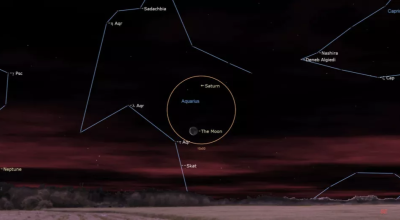Scientists are using DNA traces of ancient viruses to fight cancer, according to a new study. The research, published in the journal Nature, suggests that certain viruses that once infected our ancestors can still be found in modern-day human DNA. By pinpointing these viral fragments, researchers hope to better understand the genetic basis of cancer and potentially develop new therapies to treat the disease. The findings offer a promising avenue of exploration in the fight against cancer, which remains one of the biggest challenges in modern medicine.
According to a recent study, remnants of ancient viruses that have been passed down over thousands or even millions of years in human DNA could help fight cancer. The study, conducted by scientists at the Francis Crick Institute in London, targeted lung cancer, the leading cause of cancer-related deaths globally, to understand why some patients respond better than others to immunotherapy. Through their research, published in Nature, they found that the dormant relics of old cells can be activated by cancerous cells, which then inadvertently help the immune system target and attack the tumor.
The “fascinating” findings could be used to help more people to survive lung cancer by boosting cancer treatment or even prevent it. Associate Research Director and Head of the Oncogene Biology Laboratory at the institute, Julian Downward, said: “This work opens up a number of new opportunities for improving patient responses to immunotherapy, a crucial step in helping more people survive lung cancer.”
The research was part of the TracerX study, funded by Cancer Research UK, which has been tracking lung cancers and showed cancer’s “near infinite” power to evolve.
By observing immune cell activity in mice with lung cancer and in human lung cancer tumor samples, the researchers found that antibody-producing white blood cells called B cells contribute to the immune response to lung cancer by producing tumor-binding antibodies. When they looked at the target of this response, they found that the antibodies recognized proteins expressed by ancient viral DNA, known as endogenous retroviruses (ERVs), which form about 5% of the human genome and are passed down from the historic infections of our ancestors.
In the majority of healthy tissue, these viral genes are silenced, but in cancers, they can be woken up. George Kassiotis, the head of the retroviral immunology laboratory at the institute, said: “ERVs have been hiding as viral footprints in the human genome for thousands or millions of years, so it’s fascinating to think that the diseases of our ancestors might be key to treating diseases today. With more research, we could look to develop a cancer treatment vaccine made up of activated ERV genes to boost antibody production at the site of a patient’s cancer and hopefully improve the outcome of immunotherapy treatment.”
While more research is needed to develop a cancer vaccine, Dr. Claire Bromley from Cancer Research UK said the study added to the growing body of research that could one day make this innovative approach to cancer treatment a reality. The findings of this study are a significant step forward in cancer research and could change the way cancer is treated in the future.
In conclusion, the discovery of ancient viral DNA traces as a potential weapon against cancer has opened up new avenues for cancer research. As science delves deeper into the interplay between cancer and viral DNA, it is possible that we may soon have a more effective way to combat the disease. The findings from the study give us hope and motivation to pursue further research that could lead to better diagnoses, treatments, and ultimately a cure for cancer. We eagerly await the next breakthrough in this field, and the promising future it holds.


